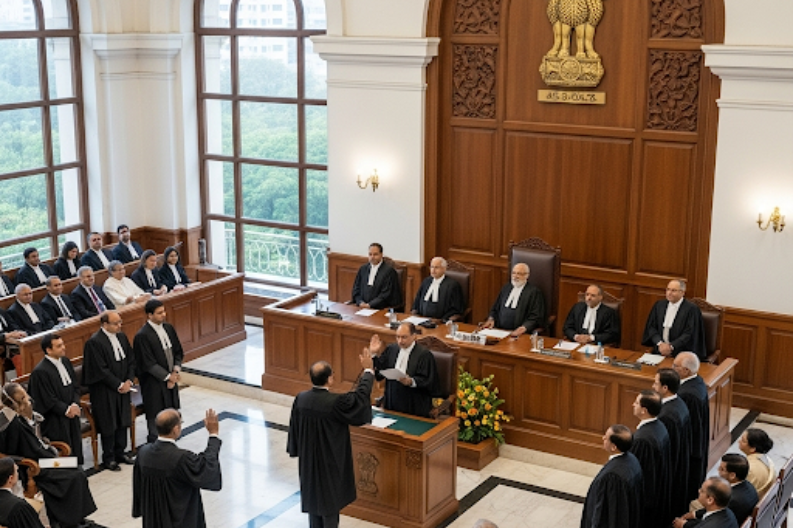The government has taken steps to address the shortage of judges in India’s high courts by appointing 16 new judges across several states. The law ministry announced the decision on Friday and stressed the need to fill key vacancies quickly. At present, 345 judge positions remain vacant, which has caused delays in court proceedings.
High courts play a vital role in handling serious legal matters and ensuring proper application of the law. When these positions stay unfilled, cases pile up and create a backlog. People often wait years for their disputes to be resolved. Punjab has been hit especially hard, with its judicial infrastructure under pressure and residents facing long delays in receiving justice.
The new judges will serve in the high courts of Andhra Pradesh, Calcutta, Delhi, Chhattisgarh, and Karnataka. According to the ministry, these appointments will help ease the burden not just in individual states but also across the country. Chandigarh, which serves as the capital of both Punjab and Haryana, will also benefit, as it is a key judicial hub for the region.
Although these appointments are a positive step, challenges remain. Hundreds of vacancies continue to weaken the efficiency of the judiciary. Citizens expect timely justice, and long delays can cause frustration or even discourage them from seeking legal remedies. The government must continue its efforts to fill the remaining posts and strengthen the courts.
The appointment of 16 judges marks progress, but much more needs to be done. India’s judicial system will only function effectively when all vacancies are filled and courts can deliver justice without unnecessary delay.



